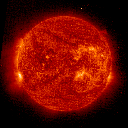Rapt(or) fascination
 On the south side of Bare Bluff, the next beach down which is part of the Moonee Beach Nature Reserve, three White-bellied sea eagles were in no way uncertain who are the masters of the beach, and who the visitor.
On the south side of Bare Bluff, the next beach down which is part of the Moonee Beach Nature Reserve, three White-bellied sea eagles were in no way uncertain who are the masters of the beach, and who the visitor.Haliaeetus leucogaster (that's the ten-buck name for this beauty), ranges wide in coastal areas. You can find them in other places, like South-East Asia, China and India, and they're still a common sight in coastal and hinterland areas of Australia where they command territories of up to about 150 square kilometres. Often you'll watch them soaring overhead on a propitious breeze, when they will wheel off at high speed inland.
I was beneath these three, watching with rapt (or should that be raptor?) attention as they sat motionless on the wind, a feat only superseded in wonderment by their ability to fly into the strong sou'-easter. Then, as one, they wheeled off to the crags of Bare Bluff.
Having been standing in awe, head directed upwards, for some minutes, I continued on my flaneur along the deserted beach, stopping here to observe a Ghost crab nest, and there to roll a driftwood tree trunk with my foot, when what looked like the Mother of All Sea Eagles came into view from the south-east, and flew onto the bluff. The pure whiteness of its underbelly and contrasting blackness of its wings was a beautiful sight as such close quarters.
I don't know where their nest is, but I imagine it would be a sight to behold. These birds make nests of sticks that can be wider than I am tall. It's probably on a tall tree somewhere (less likely, on a rocky crag), and not necessarily anywhere near Sandy, such is the range of these magnificent masters of the sky.
In my last two posts I mentioned John Gould, after whom I have named my pet Gouldian finch. The painting here today is one by the Great English naturalist. And here's a photo by the eminent Australian wildlife photographer, Greg Holland (g'day Greg ... long time), of a White-bellied sea eagle carrying a sea snake.
By the way, North American readers might be interested to know that H leucogaster has a few cousins, one of whom is none other than H leucocephalus, the Bald eagle of USA iconography fame, a magnificent creature that people are helping to bring back from the brink of extinction.



















0 Comments:
Post a Comment
<< Home